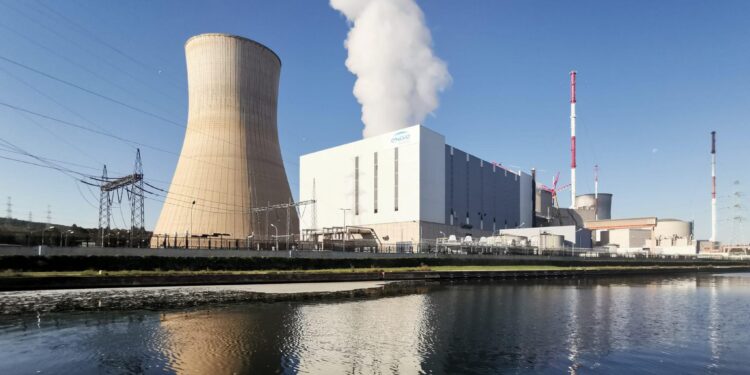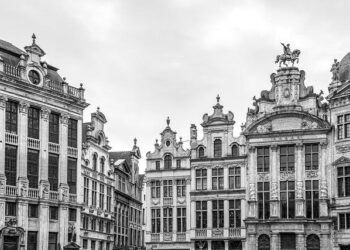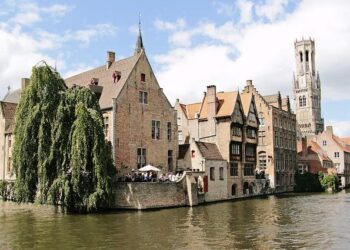Belgium has announced a reversal of its long-standing policy to phase out nuclear power, marking a significant shift in the country’s energy strategy amid growing concerns over energy security and climate goals. Meanwhile, Denmark is re-evaluating its position on nuclear energy, signaling a possible return to nuclear options as part of its future power mix. These developments reflect a broader reconsideration of nuclear power across Europe in response to geopolitical tensions and the accelerating transition to low-carbon energy sources.
Belgium Halts Nuclear Phase Out Amid Energy Security Concerns
Amid escalating energy security pressures exacerbated by geopolitical tensions and fluctuating fossil fuel supplies, Belgium has made a pivotal decision to suspend its nuclear phase-out strategy. The government’s shift underscores a strategic pivot towards maintaining and potentially expanding its nuclear capabilities to ensure a stable, low-carbon power supply. This reversal marks a significant policy change, with authorities citing increasing energy demand and the urgency to support grid reliability as prime motivators behind halting the planned closures of nuclear reactors.
The move contrasts with ongoing deliberations in Denmark, where policymakers are reconsidering the role of nuclear energy in their national energy mix. While Denmark has traditionally focused on renewable sources, the emerging energy crisis has spurred debate on the potential benefits of nuclear power as a complement rather than a competitor to renewables. Key points shaping the discourse include:
- Energy security: Reducing dependence on imported fuels
- Carbon neutrality goals: Ensuring consistent low-emission power
- Economic considerations: Balancing investment costs against long-term stability
| Country | Policy Status | Primary Energy Focus |
|---|---|---|
| Belgium | Phase-out halted | Nuclear & Renewables |
| Denmark | Reconsidering inclusion | Renewables with Nuclear debate |
Denmark Reevaluates Nuclear Power as Part of Clean Energy Strategy
In a significant policy shift, Denmark is reexamining its stance on nuclear energy, marking a potential turning point in its ambitious clean energy transition. The Danish government is exploring the possibility of integrating nuclear power into its energy mix to meet stringent climate targets and reduce reliance on fossil fuels. This reappraisal comes amid growing concerns about energy security and the challenges associated with scaling renewable sources rapidly enough to meet demand.
Key factors driving Denmark’s reconsideration include:
- Increasing energy consumption forecasts that outpace renewable deployment capacity
- Rising geopolitical risks impacting gas and oil imports
- Technological advancements in small modular reactors (SMRs) that promise safer and more flexible nuclear solutions
- Pressure to achieve carbon neutrality by 2050, in line with EU climate goals
| Energy Source | Projected 2030 Contribution | Current Status |
|---|---|---|
| Wind Power | 50% | Expanding capacity |
| Solar Energy | 15% | Growing installations |
| Nuclear Power | ||
| Nuclear Power | 10% | Under consideration |
| Energy Source | Projected 2030 Contribution | Current Status |
|---|---|---|
| Wind Power | 50% | Expanding capacity |
| Solar Energy | 15% | Growing installations |
| Nuclear Power | 10% | Under consideration |
Let me know if you’d like me to assist further in editing or expanding
Experts Urge Strengthened Investment in Nuclear Infrastructure for Climate Goals
Leading energy and climate experts are vocalizing a renewed call for robust investment in nuclear infrastructure as a pivotal strategy to meet ambitious climate targets. The shift in Belgium’s nuclear phase-out stance and Denmark’s emerging openness to nuclear energy underscore a broader European reconsideration of atomic power’s role in decarbonization. Experts emphasize that modern nuclear technologies, combined with policy support, can ensure stable, low-carbon electricity while complementing intermittent renewable sources.
Key arguments driving the push include:
- Reliability: Nuclear plants provide consistent baseload power essential for grid stability.
- Carbon Reduction: Advanced reactors emit virtually no greenhouse gases during operation.
- Energy Security: Minimizes dependency on fossil fuels and volatile energy markets.
| Country | Current Nuclear Status | Planned Developments |
|---|---|---|
| Belgium | Phase-out reversed | Life extension + new construction |
| Denmark | No nuclear plants | Reevaluation under climate policy |
| France | Major nuclear reliance | Upgrading fleet with SMRs |
Future Outlook
As Belgium reverses its phase-out policy and Denmark reconsiders its stance on nuclear energy, the landscape of European nuclear power is clearly shifting. These developments underscore a growing recognition of nuclear energy’s role in achieving climate goals and ensuring energy security amid geopolitical uncertainties. As policymakers across the continent reassess their strategies, the coming years will be pivotal in determining the future trajectory of nuclear power in Europe.
















